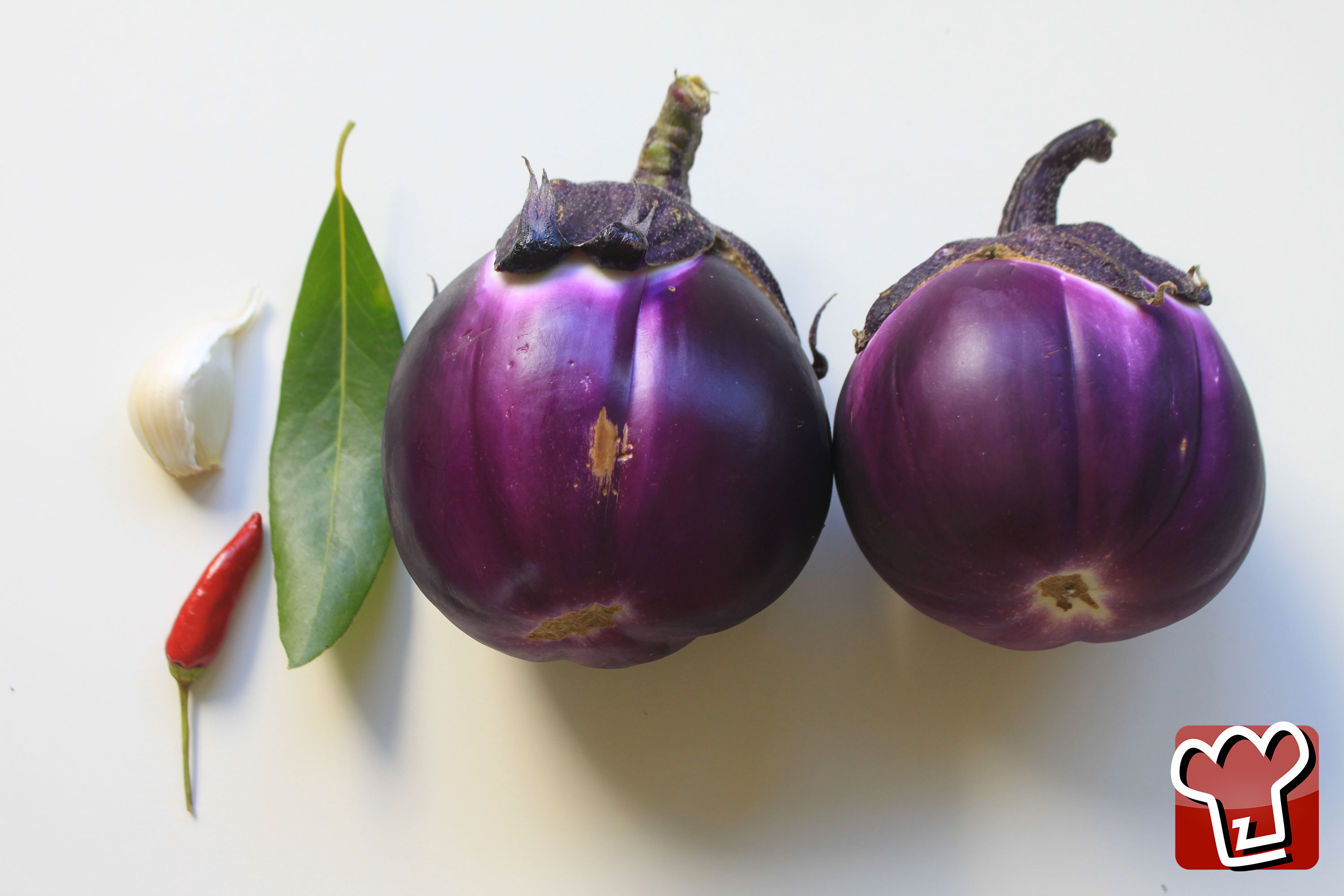Aubergine preserved in oil
Aubergines are one of the tastiest and best-loved summer vegetables. During the summer their flavour is really intense and they are virtually seed-free. So we wanted to set some aside for us to use in the winter, as a base for a quick dinner with fish or meat, or else to use them to make pizzas and crostini. The recipe we suggest uses uncooked aubergines, but they are quite safe provided you follow the recipe and the resting times indicated to the letter. Enjoy your work!
Ingredients
-
garlic 1 clove
-
extra virgin olive oil

Send the recipe
Preparation
Peel the aubergines and cut them into slices. Lay them in a colander and sprinkle with plenty of salt. Add a weight and leave for 12 hours to extract the bitter juices. When the 12 hours are up, rinse off the salt, squeeze the aubergines and dry them with absorbent paper. Take a sealed container, add the aubergine slices and cover with the vinegar, then leave for another 12 hours making sure they are covered well. After another 12 hours, drain, squeeze and dry the aubergines again. Place them in a sterilized jar with some excellent olive oil, interspersing the aubergines with garlic, chilli pepper, bay leaves, mint and oregano. Seal and either consume immediately or sterilize by boiling the jar in water for 20 minutes.
Step by step
|
View the step by step
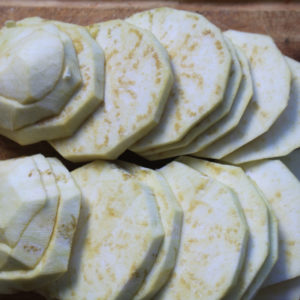
|
Slice the aubergines
|
|
View the step by step
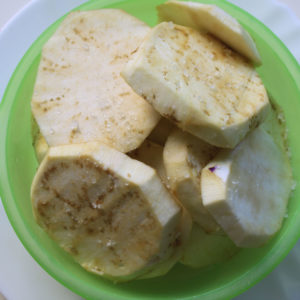
|
Add the salt to the aubergines
|
|
View the step by step
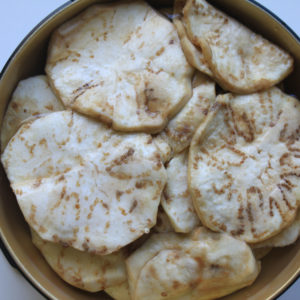
|
Place the aubergines in vinegar
|
|
View the step by step

|
Squeeze out and dry the aubergines
|
|
View the step by step
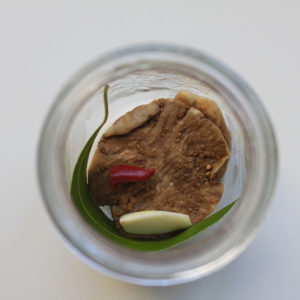
|
Place the aubergines in layers in a jar along with the flavourings
|
|
View the step by step
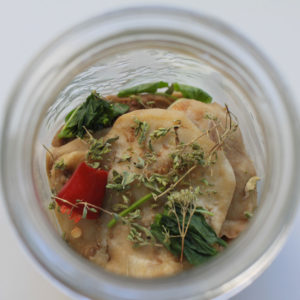
|
Continue until all the ingredients are finished
|
|
View the step by step
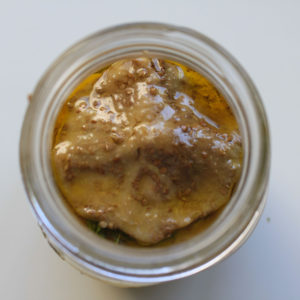
|
Cover completely with oil, eliminating any air
|
|
View the step by step
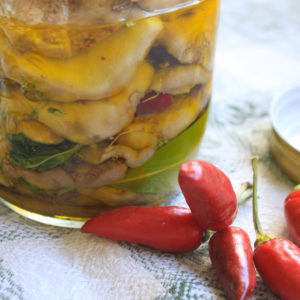
|
Either serve straightaway or sterilize
|
Additional Information
How are aubergines made in oil?
To make aubergines in oil, cut the aubergines into slices, sprinkle them with salt and let them rest to remove the water. Rinse them, dry them and cook them briefly in water and vinegar. Dry them again, put them in jars with garlic, chili pepper and olive oil, pressing well to avoid air bubbles.
How to avoid botulinum in aubergines in oil?
To avoid botulinum in aubergines in oil, it is essential to carefully sterilize the jars before use. Use vinegar to acidify the eggplants and make sure they are completely covered in oil. Store the jars in a cool, dry place, and consume within a few months.
How do you make aubergines in oil without vinegar?
To prepare aubergines in oil without vinegar, cut the aubergines, salt them and let them rest to eliminate the water. Cook them briefly in boiling water, then dry them well. Place the aubergines in sterilized jars, add spices and cover with olive oil, making sure there are no air bubbles.
How do you keep aubergines in oil from darkening?
To prevent the aubergines in oil from darkening, it is important to immerse them in a solution of water and lemon after cutting them. Also, using vinegar when cooking helps keep the color light. Dry them well before placing them in jars to prevent oxidation.
What are aubergines in oil good for?
Eggplants in oil are rich in fibre, vitamins and minerals. They help improve digestion, reduce cholesterol and provide antioxidants useful for fighting free radicals. The olive oil used is beneficial for the heart thanks to its monounsaturated fats.
How long do homemade aubergines in oil last?
Homemade aubergines in oil can last up to six months if stored properly in a cool, dark place. Make sure they are always completely covered in oil and that the jars are hermetically sealed to avoid contamination.
What oil is used for pickled aubergines?
For aubergines in oil, extra virgin olive oil is usually used, which guarantees a rich flavor and good preservation. Seed oil can be used as an alternative, but olive oil is preferable due to its nutritional properties and superior taste.
How are Neapolitan-style aubergines in oil made?
To prepare Neapolitan-style aubergines in oil, cut the aubergines into slices and salt them to remove the water. Rinse them, dry them and cook them briefly in water and vinegar. In sterilized jars, alternate layers of aubergines with garlic, mint, chili pepper and olive oil, pressing well.
How long do homemade aubergines in oil last?
Homemade aubergines in oil last about six months if stored in a cool, dark place. It is essential that they are always completely covered in oil and that the jars are hermetically sealed to avoid bacterial contamination.
How to pasteurize jars of aubergines in oil?
To pasteurize jars of eggplant in oil, immerse the closed jars in a pan of boiling water, making sure they are completely submerged. Boil for about 20-30 minutes, then leave to cool in the water. This process helps eliminate any bacteria.
How to understand if aubergines in oil are good?
To understand if aubergines in oil are good, check their appearance and smell. They must have a uniform color and a good scent. If you notice air bubbles, mold, an unpleasant odor, or a change in color, it is best not to consume them.
How long does it take to eat aubergines in oil?
The aubergines in oil are ready to be eaten after about two weeks of rest in a jar, to allow the flavors to blend. However, it is possible to wait even a month to obtain an even more intense and harmonious taste.




